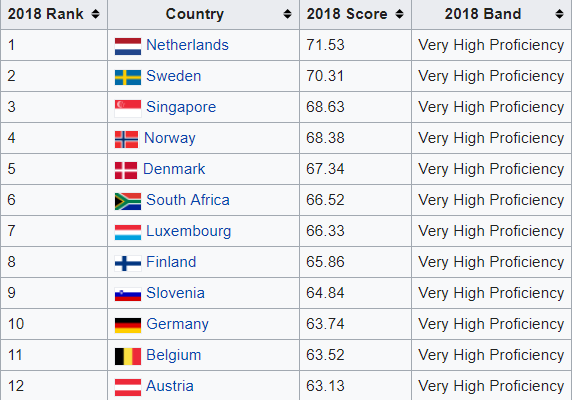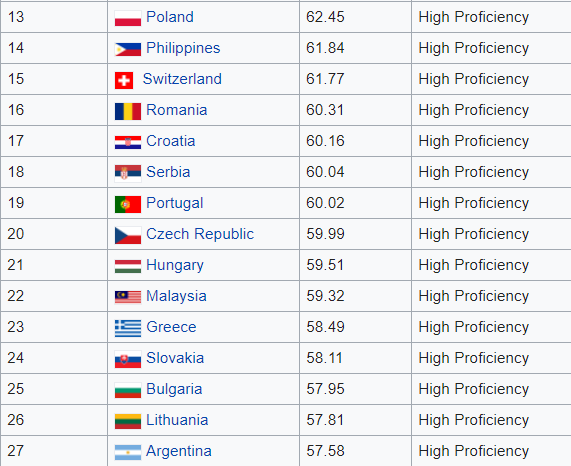Important Factors Affecting Listening Comprehension – the Only Two That Matter If You Want to Understand ASAP

Listening comprehension is quite universally known to be one of the most, if not the most, demanding language skill.
A lot of learners struggle for many years to be able to understand even 90% of a conversation. And it gets worse. The number of language learners who are capable of understanding almost every word they hear amounts to a few percents.
All The Factors Affecting Listening Comprehension
Listening comprehension is a quite complex beast as it consists of lots of smaller sub-beasts, or sub-skills if you will. As you will see in a moment, almost everything can affect your level of listening comprehension.
1. Your pronunciation
This is the exact reason why you might understand a typical accent from a given country but you will struggle with a dialect. Simply, at this point, your internal representations are not broad enough to encompass new external representations.
Read more: How to improve your pronunciation.
2. Your grammar
It’s much more difficult to understand the deeper meaning of an utterance if you don’t know how different words come together. Don’t worry. You don’t have to concentrate on learning every single grammar construction in your target language. Simply start with the functional grammar.
3. Knowledge of how sounds merge or get reduced
Unfortunately, not everything is what it seems. It certainly seems to be the case with sounds. In almost any language there is a tendency of different sounds to be reduced (e.g. vowel reduction) or to be merged (read more about phonological changes).
If you don’t grasp how these changes happen, it will take you much longer to decipher the ongoing stream of speech.
4. Your overall listening time
5. Visual support
6. Vocabulary size
It’s as clear as day. The more words you know, the easier it is to fish them out of a recording. If your current vocabulary is, say, 1000 words and you can’t figure out why you don’t understand much, this might be the reason.
Read more: The Word Substitution Technique – How To Increase Your Vocabulary Size Considerably.
7. Concentration
The Two Most Important Factors Affecting Listening Comprehension
It’s always crucial to know what constituent of some skill is the most important. Skills are difficult enough as they are. However, without any semblance of prioritization, you might spend too much time floundering about desperately.
You might think about what I am about to propose to you as yet another application of the Pareto principle.
As a reminder:
The Pareto principle (also known as the 80/20 rule, the law of the vital few, or the principle of factor sparsity) states that, for many events, roughly 80% of the effects come from 20% of the causes.
And, as you will shortly see, even among these two, there is one which is clearly more important.
1. The total amount of listening practice

Photo by Volkan Olmez on Unsplash
2. The size of your vocabulary
There is a very good reason why the name of my language learning course is Vocabulary Labs and not something else.
The size of your vocabulary is the most reliable predictor of language progress there is. Without knowing a lot of words, improving your listening comprehension will prove very difficult.
Let me demonstrate it.
First, improving your listening comprehension can be understood as:
- getting used to the prosody of your target language
- picking up words you know from the ongoing stream of speech
What’s more, we know from the literature that for most languages, 3000 words allow you to understand about 95% of most ordinary texts (Hazenberg and Hulstijn, 1996). 5000 words, in its turn, will enable you to understand about 98% of most ordinary texts (Nation (1990) and Laufer (1997))(read more about levels of comprehension and vocabulary size).
It’s somewhat agreed that getting accustomed to the prosody doesn’t take that much time. That leaves us with the second task you have to face: fishing out words from the stream of speech.
If your vocabulary size is 200, how many percents of words are you able to pick up?
Calculate Your Listening Effectiveness
Let’s calculate this, and let’s treat 5000 words as our perfect reference point as this number of words would allow you to understand most of the things you would hear.
200/5000 = 0.040 = 4%
We have arrived at the number 4% but what does it really tell us?
It means that your listening effectiveness per 1 minute or hour of listening practice is 4%.
So yeah, you can spend hundreds of hours trying to improve your comprehension, but it may turn out that it won’t change too much.
What if you started listening to recordings with the vocabulary of 1000 words?
1000/5000 = 0.20.= 20%
At this point, your listening effectiveness would increase fivefold! Let me formulate it slightly differently – learning just 800 words can greatly increase your listening comprehension.
And this is the exact reason why I advocate listening practice only once you master at least 2000 words (or even more). Having such a vocabulary optimizes your learning time and allows you to progress much faster than others without having to waste more hours.
One exception to this rule (i.e., what drastically increases your listening comprehension)
Of course, keep in mind that my listening effectiveness model is simplistic in one aspect.
If you learn a language which is already similar to the ones you already know, your passive vocabulary knowledge will allow you to pick up words which are similar to the ones you are familiar with.
For example, if I decide to learn Russian, which shares about 40% of words with Polish, my starting listening comprehension will be about 40%!
However, that still means that if you increase your vocabulary size with the words you don’t, your listening effectiveness will go up even higher!
Important Factors Affecting Listening Comprehension – Summary
I first published my article “How to learn German from scratch to a B2 level in 5 months,” a couple of years ago. Back then, one statement of mine seemed to spark a lot of controversies.
I forbade Mathew to read and listen to anything for first three months. Actually, if you know how to acquire vocabulary, you do not context to do it. You can learn first 3-5 thousand words simply from frequency lists. It allows you to save a lot of time simply by not being forced to go through all those crappy dialogs in textbooks.
And I get it. This piece of advice went against everything most people have been taught in schools. It also contradicted almost every strategy proposed by my fellow polyglots. However, as time goes by, there seem to be more and more studies that confirm this theory.
Studies confirming the importance of the aforementioned factors affecting listening comprehension
[[ … ]] it was revealed that the ability of learners to make connections between highly common English words appears to be dependent on the number of words they know. The more words they know, the more connections they are able to identify. At present, it is not known whether this ability to make connections is a cause or a result of knowing the meanings of more words, or if it is a combination of both.
[[ … ]] it is also hoped that new avenues shall be explored that focus more deeply on what it means to know a word and the role of lexical retrieval and memory in L2 lexical processing. At present, to its detriment, the field of L2 vocabulary studies remains remarkably insular.
The conclusion is as follows – if you want to improve your listening comprehension asap, you have to, first of all, increase your vocabulary size. Only then does it make sense to devote a lot of time to listening practice.
My advice to you is this – if you want to improve your listening comprehension, you should concentrate on expanding your vocabulary size first (don’t forget about mastering functional grammar). Only then should you gradually increase your overall listening time while still increasing the numbers of words you know.
Do you agree with my theory that the vocabulary size is the most important factor affecting listening comprehension? Let me know in the comments!
Done reading? Time to learn!
Reading articles online is a great way to expand your knowledge. However, the sad thing is that after barely 1 day, we tend to forget most of the things we have read.
I am on the mission to change it. I have created about 25 flashcards that you can download to truly learn information from this article. It’s enough to download ANKI, and you’re good to go. Memorizing things like “internal phonetic representations” can be really easy!

















